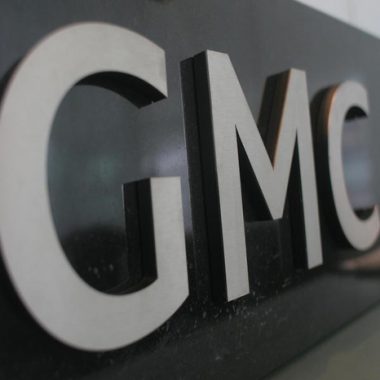GMC to ask why BME doctors face more complaints than white colleagues

The GMC has announced the launch of its review into why black and minority ethnic doctors are more likely to face complaints from employers than their white colleagues.
Chief executive Charlie Massey used a speech at the British Association of Physicians of Indian Origin (BAPIO) conference this weekend to announce the review, which will be led by two experts in leadership diversity.
Speaking to Pulse, Mr Massey said the work would look at ‘elements of conscious and unconscious bias’ and ‘workplace cultures’.
He said it would also look at ‘whether there is an under-representation of other doctors’ in fitness-to-practice investigations.
Mr Massey said: ‘Some of it is also about whether we are good enough at understanding our data, which doctors are most at risk of being complained about and how could our analysis help us to find what interventions we could take that might stop that from happening in the first place.’
The review is being led by Roger Kline, a research fellow at Middlesex University Business School, who has previously carried out NHS research revealing a lack of BME doctors at the highest levels in the NHS.
It will be co-led by Dr Doyin Atewologun, a faculty member at Queen Mary University of London’s School of Business and Management, specialising in work psychology, diversity and leadership.
The latest state of medical education and practice GMC report found that BME GPs are 20% more likely to face a patient complaint and 30% more likely to be investigated by the GMC.
But Mr Massey said: ‘We’ve audited our processes. We audit them on a regular basis to make sure that our own processes aren’t building in a level of discrimination.
‘All of those audits have always found that we have been not discriminatory in the way in which we managed our processes.
He added: ‘But we do know that there is an overrepresentation of BME doctors that have been complained about and we want to know more about what is driving this, as well as whether there is an under representation of other doctors.
‘That is why we are intensifying our efforts to understand better this issue through more detailed research, analysis and advice.’
BMA chair Dr Chaand Nagpaul, a GP in north-west London, said: ‘This is an important area and it is positive that the GMC is commissioning this work.
‘The BMA believes that we must address and tackle all aspects affecting BME doctors in the NHS from differential levels of attainment and increased levels of referrals for disciplinary and performance issues, to concerns regarding bullying and harassment, and unequal levels of achievement and career progression.
Dr Ramesh Mehta, president of BAPIO, told Pulse: ‘The GMC has had several reviews and research projects on the issue in the past with no useful outcome.
‘BAPIO will keep a close watch on the progress and the recommendations of this review.’
The GMC faced huge criticism in recent months from the medical profession for going to the High Court in order to strike off Nigerian-born Dr Hadiza Bawa-Garba, who was convicted of gross negligence manslaughter.
Mr Kline’s previous research addressed the ‘snowy peaks’ of the NHS, with two fifths of London’s NHS trust boards holding no BME members.









